Reports
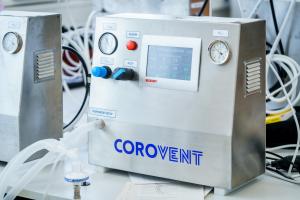
The CoroVent ventilator, developed at the Faculty of Biomedical Engineering of the Czech Technical University in Prague by a team of prof. Karel Roubík and manufactured by MICo Medical, was delivered to several hospitals throughout the Czech Republic during the autumn. These lung ventilators were paid with money from citizens and companies in a public collection earlier this spring. 106 of these fans will now be delivered to the State Material Reserves Administration.
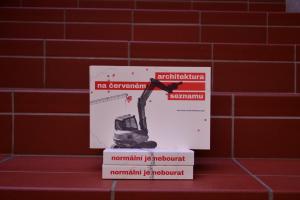
A new publication entitled “Architektura na červeném seznamu / normální je nebourat” is published, which will please not only experts but also laymen interested in architecture. Its authors are experts from the Institute of Theory and History of Architecture and students of the Faculty of Architecture of the Czech Technical University in Prague. On specific examples, they describe the mechanisms of the demise of Czech architecture in the post-war period and call for public discussion. The book was published in Czech Technology - CTU Publishing House.
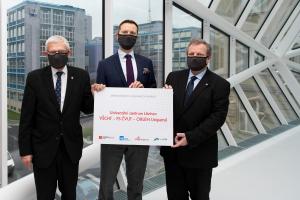
2020/12/14
In 2002, the Unipetrol refining and petrochemical group began cooperation with the University of Chemical Technology in Prague (ICT), which culminated in 2015 with the establishment of the ICT Prague Center - Unipetrol Litvínov, which is located in the Unipetrol production plant in Záluží near Litvínov. The unique connection, where the public university is located directly in the commercial production area, is exceptional not only in the Czech Republic, but also in Europe. The connection is also unique thanks to the possibility to verify the acquired theoretical knowledge directly in practice, which schools and industrial companies have been calling for for many years. Now another partner of the University Center is the Faculty of Mechanical Engineering of the Czech Technical University in Prague, which plans to include two to three subjects in teaching in Litvínov. By expanding the Unipetrol University Center, it increases university study opportunities in the Ústí nad Labem Region, and thus helps to raise the attractiveness and competitiveness of this region.

To demonstrate the so-called quantum supremacy of a quantum computer based on photons, Chinese scientists used a solution to a computational problem formulated at the Faculty of Nuclear Sciences and Physical Engineering of the Czech Technical University in Prague (FNSPE). Specifically, the Gaussian Boson Sampling protocol, developed by Craig Hamilton and Igor Jex of the FNSPE and their partners, the group of Christine Silberhorn of the University of Paderborn (FRG). The research team of the Chinese University of Science and Technology published a report on the results on December 3, 2020 in the journal Science.
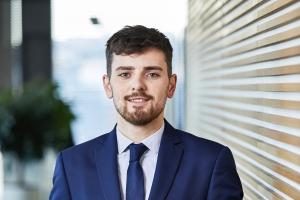
This year's second successful holder of the prestigious and internationally recognized MRICS authorization title became Ing. Marek Devátý from the Faculty of Civil Engineering CTU. Graduates of the Master's degree program in Project Management and Engineering at the Faculty of Civil Engineering of the Czech Technical University can apply for this degree. This is based on the accreditation obtained in 2017 by the Department of Economics and Management in Construction from RICS - Royal Institution of Chartered Surveyors.
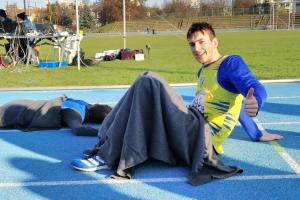
The postponed Championship of the Czech Republic for a 50-kilometer walk took place in Trnava on Saturday, 5 December, 2020. The race was postponed from the spring term and untraditionally took place on the athletic oval, so it was necessary to miss a full 125 laps. The winner was Vít Hlaváč, studying the Biomedical Technician field at the Faculty of Biomedical Engineering of the Czech Technical University with a time of 3:56:26, setting a new Czech record.
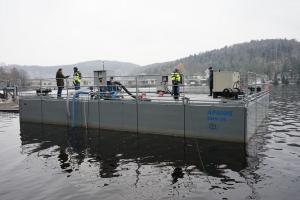
Stress tests of a unique pontoon assembly with a stabilization system, enabling transport of oversized loads, took place at the Slapy Dam on Thursday, 3 December. The proposed solution is applicable in both civilian and military areas. It can be used not only to move heavy loads, for example in the reconstruction of bridge structures, but also in the maintenance of watercourses, or in dealing with emergencies. Representatives of the Faculty of Mechanical Engineering of the Czech Technical University, the Government of the Czech Republic, the Ministry of Industry and Trade, the Ministry of Industry and Trade, the RVC, Waterways administration and other organizations and construction companies were invited to vitness the stress tests.
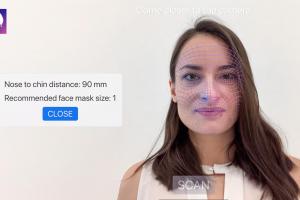
The Czech Institute of Informatics, Robotics and Cybernetics of the Czech Technical University in Prague (CIIRC CTU) and TRIX Connections, a start-up and spin-off company at the Czech Technical University in Prague, jointly developed software that recommends a suitable seal size for devices using a smartphone for more comfortable use of the RP95 protective half mask. Customization and connection of end users directly with manufacturers is the essence of distributed production, which research at CIIRC CTU has long been concerned with. The application was launched just a few days after the CIIRC CTU team received an extraordinary award “Česká hlava” from the Council for Research, Development and Innovation for its mask for 3D printing.
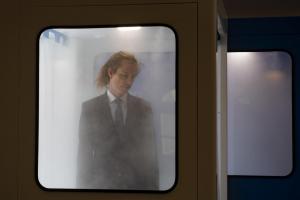
The man in the award-winning Czech Press Photo 2020 photograph is a world-renowned expert from CIIRC
2020/12/03
The main prize in the Czech Press Photo 2020 competition was won by ČTK reporter Roman Vondrouš. Among the 5,000 photographs, he succeeded with a picture of a man passing through a disinfection gate, which was installed as a measure against the spread of coronavirus at the Czech Technical University in Prague.
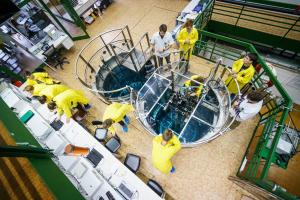
For 30 years, the academic fission reactor VR-1 has served students from the Czech Republic and abroad, but it is also used for research activities. The reactor is operated by the Department of Nuclear Reactors of the Faculty of Nuclear Science and Physical Engineering (FNSPE) of the Czech Technical University in Prague. The VR-1 reactor reached the so-called first critical state on December 3, 1990 at 4:25 p.m. However, preparations for its construction began in 1982.